- Home
- Diana Palmer
Paper Rose Page 5
Paper Rose Read online
Page 5
“Like what?” Audrey persisted. “Don’t tell me you were lovers!”
“Of course not,” Tate said irritably. “And that’s all I’m going to say on the subject.”
“She’s not much to look at even now.” Audrey was also staring after Cecily and Holden. “He does like her, doesn’t he?” she drawled. “He could afford to keep her. They must spend a lot of time together now that he’s involved in that museum.”
That had just occurred to Tate, too, and he didn’t like it. Holden was years too old for Cecily.
Colby caught that disapproval in his face, but he didn’t remark on it. He held up his empty cup. “I need a refill. Excuse me.”
He left them together. Audrey leaned against Tate’s muscular arm with a soft sigh. “Why did you want to come to this boring party?” she asked. “We could have gone to the ballet with the Carsons instead.”
“I hate ballet.”
“You like opera.”
“There’s a difference.” He was still glaring at the doorway through which Holden and Cecily had vanished. “What does she see in him?” he wondered.
“Maybe he likes to dig up dead people, too,” she said with a contemptuous laugh.
Tate could feel the heat rising over his cheekbones. “I’m still trying to understand why you told Cecily that I paid for her education.”
She looked up at him innocently. “You never said I couldn’t. She’s too old to need a guardian, you know. It was only ever just an excuse to hang around you, getting in my…in our way. She’ll get over it.”
“Get over what?” he asked with a scowl.
“Her infatuation.” She patted his arm, oblivious to the shock on his face. “All young girls go through it. Someone had to show her that she has no place in your life now.” She looked up at him adoringly. “You have me, now.”
He went with her to the punch bowl, still frowning and feeling vague disquiet. Audrey was constantly in his face, getting the manager to let her into his apartment at all hours, even phoning him at work. She was possessive to a frightening degree. He didn’t understand why. She was someone to take around, but he wasn’t intimately involved with her. She was acting as if they were attached at the hip, and he didn’t like it. Her attitude toward Cecily chafed. “What makes you think she’s infatuated with me?” he asked conversationally.
“Oh, Colby told me once, when he was a little tipsy. It was before they started going around together,” she said airily. “He felt sorry for her, but I don’t. There are plenty of eligible men in the world. She isn’t very attractive, but she’ll find someone of her own one day. Maybe even Colby,” she added thoughtfully. “They seem very close, don’t they—even closer than she and Matt Holden. She might be just the woman to help him get over his ex-wife!”
Chapter Three
The annual Pow Wow on the Wapiti Ridge Sioux reservation in southwestern South Dakota was Cecily’s favorite event. She’d promised Leta that she’d show up for it, and she had, begging an extra day off past the weekend on the excuse that she was going to look into buying some handicrafts from the reservation for the museum. Tate wasn’t likely to be here. Colby had mentioned that he was abroad again, so Cecily felt safe, for the moment. It would have hurt Leta’s feelings if she hadn’t come, since Leta didn’t know why there was a rift between her son and Cecily.
She looked around at the beautiful costumes, many made of fringed buckskin and very old, some of more recent vintage. Most Pow Wows were held in the summer months. Then she reminded herself that mid-September was still summer, even if there was a nip in the air here.
She didn’t have a drop of Lakota blood, but she had closer connections to this branch of the Oglala tribe than most whites. Tate Winthrop and his mother Leta had given Cecily refuge when she was still in her teens. She and Tate still weren’t speaking after the crab bisque attack, but Leta was like the mother she’d lost.
“I see a lot more people here this year,” Cecily told Leta, scanning the colorful crowd while sitting on hay bales around a circle where a dance competition was being held to the throbbing beat and chant of the drummers.
“They advertised it more this year,” Leta replied with a grin. She was young-looking for fifty-four, a little plump but with a pretty face, dark brown eyes and braided silver-flecked dark hair. She was dressed in fawn buckskins and boots with beaded, feathered ornaments in her hair. One of the ornaments was a circle with a cross inside, denoting the circle of life.
“You look lovely,” Cecily said with genuine affection.
Leta made a face. “I’m fat. You’ve lost weight,” she added. Her eyes narrowed.
Cecily stretched lazily. She was wearing a simple blue checked shirt with a denim skirt and boots. Her long blond hair was braided and circled around the crown of her head. Pale green eyes behind large framed glasses stared into nothing.
“Remember what I told you on the phone, that I found out the truth about the grant that was paying all my expenses?” she asked.
Leta nodded.
“Well, it wasn’t a grant that was paying for my education and living expenses.” She took a harsh breath. “It was Tate.”
Leta scowled. “Are you sure?”
“I’m very sure.” She glanced at the older woman. “I found out in the middle of Senator Matt Holden’s political fund-raiser, and I lost my temper. I poured crab bisque all over your son and there were television cameras covering the event.” She turned her wounded eyes toward the dancers. “I was devastated when I found out I’m nothing more than a charity case to him.”
“That isn’t true,” Leta said gently, but a little remotely. “You know Tate’s very fond of you.”
“Yes. Very fond, the way a guardian is fond of a ward. He owned me.” She stared at the brown grass under her feet, grimacing at the memory. “I couldn’t bear the humiliation of knowing that. I guess he thought I wouldn’t be able to make it on my own. I wasn’t really very mature at seventeen. But he could have told me the truth. It was horrible to find it out that way, especially at my age.” She took a deep breath. “I quit school, moved out of the apartment and took the job Senator Holden was asking me to take at the new museum he helped open. He’s a nice man.”
Leta looked away nervously. “Is he?” she asked in a curiously strained tone.
“You’d like him,” she said with a smile, “even though Tate doesn’t.”
Leta’s shoulders moved as if she were suddenly uncomfortable. “Yes, I know there’s friction between them. They don’t agree on any Native American issues, most especially on the fight to open a casino on Wapiti Ridge.”
“The senator seems to think that organized crime would love to move in, but I don’t think there’s much danger of that. Other Sioux reservations in the state have perfectly good casinos. Anyway, it’s the tribes in other states trying to open casinos that are drawing all the heat from gambling syndicates.”
Leta hesitated. “Yes, but just lately…” She caught herself and smiled. “Well, there’s no use talking about that right now. But, Cecily, what about your education?”
Of course, Leta knew that Tate had enrolled her in George Washington University near his Washington, D.C., apartment, so that he could keep an eye on her. He worked as security chief for Pierce Hutton’s building conglomerate now, a highly paid, hectic and sometimes dangerous job. But it was less wearing on Leta’s nerves than when he worked for the government.
“I can go back when I can afford to pay for it myself,” Cecily returned.
“There’s something more, isn’t there?” Leta asked in her soft voice. “Come on, baby. Tell Mama.”
Cecily grimaced. She smiled warmly at the older woman. She’d just turned twenty-five, but Leta had been “Mama” since hers had died and left her penniless, at the mercy of a drunken, lusting stepfather.
“Tate’s new girl,” she said after a minute. “She’s really beautiful. She’s thirty, divorced and she looks like a model. Blond, blue-eyed, perfect figure, social
graces and she’s rich.”
“Bummer,” Leta said drolly.
Cecily burst out laughing at the drawled slang. Leta was one of the most educated women she knew, politically active on sovereignty issues for her tribe and an advocate of literacy programs for young Lakota people. Her husband had died years before, and she’d changed. Jack Yellowbird Winthrop had been a brutal man, very much like Cecily’s stepfather. During the time she spent with Leta, he was away on a construction job in Chicago or she’d never have been able to stay in the house with them.
“Tate’s a man,” Leta continued. “You can’t expect him to live like a recluse. His job involves a lot of social events. Where Hutton goes, he goes.”
“Yes, but this is…different,” Cecily continued. She shrugged. “I saw him with her last week, at a coffeehouse near my apartment. They were holding hands. She’s captivated him.”
“The Lakota Captive.” Leta made a line in the air with her hand. “I can see it now, the wily, brave Lakota warrior with the brazen white woman pioneer. She carries him off into the sunset over her shoulder…”
Cecily whacked her with a strand of grass she’d pulled.
“You write history your way, I’ll write it my way,” Leta said wickedly.
“Native Americans are stoic and unemotional,” Cecily reminded her. “All the books say so.”
“We never read many books in the old days, so we didn’t know that,” came the dry explanation. She shook her head. “What a sad stereotype so many make of us—a bloodthirsty ignorant people who never smile because they’re too busy torturing people over hot fires.”
“Wrong tribe,” Cecily corrected. She frowned thoughtfully. “That was the northeastern native people.”
“Who’s the Native American here, you or me?”
Cecily shrugged. “I’m German-American.” She brightened. “But I had a grandmother who dated a Cherokee man once. Does that count?”
Leta hugged her warmly. “You’re my adopted daughter. You’re Lakota, even if you haven’t got my blood.”
Cecily let her cheek fall to Leta’s shoulder and hugged her back. It felt so nice to be loved by someone in the world. Since her mother’s death, she’d had no one of her own. It was a lonely life, despite the excitement and adventure her work held for her. She wasn’t openly affectionate at all, except with Leta.
“For God’s sake, next you’ll be rocking her to sleep at night!” came a deep, disgusted voice at Cecily’s back, and Cecily stiffened because she recognized it immediately.
“She’s my baby girl,” Leta told her tall, handsome son with a grin. “Shut up.”
Cecily turned a little awkwardly. She hadn’t expected this. Tate Winthrop towered over both of them. His jet-black hair was loose as he never wore it in the city, falling thick and straight almost to his waist. He was wearing a breastplate with buckskin leggings and high-topped mocassins. There were two feathers straight up in his hair with notches that had meaning among his people, marks of bravery.
Cecily tried not to stare at him. He was the most beautiful man she’d ever known. Since her seventeenth birthday, Tate had been her world. Fortunately he didn’t realize that her mad flirting hid a true emotion. In fact, he treated her exactly as he had when she came to him for comfort after her mother had died suddenly; as he had when she came to him again with bruises all over her thin, young body from her drunken stepfather’s violent attack. Although she dated, she’d never had a serious boyfriend. She had secret terrors of intimacy that had never really gone away, except when she thought of Tate that way. She loved him….
“Why aren’t you dressed properly?” Tate asked, scowling at her skirt and blouse. “I bought you buckskins for your birthday, didn’t I?”
“Three years ago,” she said without meeting his probing eyes. She didn’t like remembering that he’d forgotten her birthday this year. “I gained weight since then.”
“Oh. Well, find something you like here…”
She held up a hand. “I don’t want you to buy me anything else,” she said flatly, and didn’t back down from the sudden menace in his dark eyes. “I’m not dressing up like a Lakota woman. In case you haven’t noticed, I’m blond. I don’t want to be mistaken for some sort of overstimulated Native American groupie buying up artificial artifacts and enthusing over citified Native American flute music, trying to act like a member of the tribe.”
“You belong to it,” he returned. “We adopted you years ago.”
“So you did,” she said. That was how he thought of her—a sister. That wasn’t the way she wanted him to think of her. She smiled faintly. “But I won’t pass for a Lakota, whatever I wear.”
“You could take your hair down,” he continued thoughtfully.
She shook her head. She only let her hair loose at night, when she went to bed. Perhaps she kept it tightly coiled for pure spite, because he loved long hair and she knew it.
“How old are you?” he asked, trying to remember. “Twenty, isn’t it?”
“I was, five years ago,” she said, exasperated. “You used to work for the CIA. I seem to remember that you went to college, too, and got a law degree. Didn’t they teach you how to count?”
He looked surprised. Where had the years gone? She hadn’t aged, not visibly.
“Where’s Audrey?” she asked brightly, trying to sound nonchalant about it when her heart was breaking.
Something changed in his face. He looked briefly disturbed. “She couldn’t get away,” he said in a tone that didn’t invite questions. “One of her friends was having a tea, and she promised to help. I flew out alone.”
Cecily wondered if it was really because of a party that Audrey had stayed behind, or if his society girlfriend didn’t want to be seen on an Native American reservation. Tate had mentioned once or twice that Audrey had asked him repeatedly to get a conservative haircut. As if he’d ever cut his hair willingly. It was a part of his heritage, of which he was fiercely proud. At least she didn’t have to worry about him marrying Audrey. He might be smitten, but he’d said for years that he wasn’t going to dilute his Lakota blood by mingling it with a white woman. He wanted a child who was purely Lakota, like himself. If he ever married, it would be to a Lakota woman. The first time he’d said that, it had broken Cecily’s heart. But she’d come to accept it. When she realized that she was never going to be able to have Tate, she gave up and devoted herself to her studies. At least she was good at archaeology, she mused, even if she was a dismal failure as a woman in Tate’s eyes.
“She’s been broody ever since we got here,” Leta said with pursed lips as she glanced from Tate to Cecily. “You two had a blowup, huh?” she asked, pretending innocence.
Tate drew in a short breath. “She poured crab bisque on me in front of television cameras.”
Cecily drew herself up to her full height. “Pity it wasn’t flaming shish kebab!” she returned fiercely.
Leta moved between them. “The Sioux wars are over,” she announced.
“That’s what you think,” Cecily muttered, glaring around her at the tall man.
Tate’s dark eyes began to twinkle. He’d missed her in his life. Even in a temper, she was refreshing, invigorating.
She averted her eyes to the large grass circle outlined by thick corded string. All around it were makeshift shelters on poles, some with canvas tops, with bales of hay to make seats for spectators. The first competition of the day was over and the winners were being announced. A women-only dance came next, and Leta grimaced as she glanced from one warring face to the other. If she left, there was no telling what might happen.
“That’s me,” she said reluctantly, adjusting the number on her back. “Got to run. Wish me luck.”
“You know I do,” Cecily said, smiling at her.
“Don’t disgrace us,” Tate added with laughter in his eyes.
Leta made a face at him, but smiled. “No fighting,” she said, shaking a finger at them as she went to join the other competitors.
“She’s different since your father died,” Cecily commented, sitting down on one of the bales of hay, grateful for the diversion. “I’ve never seen her so animated.”
“My father was a hard man to live with,” he replied quietly. “If he hadn’t spent most of his life away on construction jobs, I’d probably have killed him.”
She knew he wasn’t kidding. Jack Winthrop had beaten Leta once, and Tate had wiped the floor with him after coming home unexpectedly and finding his mother cut and bruised. By then, he’d been in espionage work for some time. Jack Winthrop, big and tough as he was, was no match for the experienced younger man. It was the last time Leta ever suffered a beating, too. Jack became afraid of his son. Cecily remembered that Jack had never spoken one kind word about his only child. Oddly he seemed to hate Tate.
“You didn’t like your father much, did you?” Cecily remembered.
“He wasn’t a likable man.” He sat down beside her.
She felt the warm strength of him and closed her eyes briefly to savor it. He hardly ever touched people, not even his mother. In all the long years she’d been part of his life, he’d never touched her with intent. Not to hold her hand, kiss her even on the cheek, brush back her hair. That one time, when she’d flown to Oklahoma to help him with his case was the closest they’d come to intimacy, and that was anticlimactic, even if she had lived on it for weeks afterward. She’d ached for any contact at all, but that wasn’t Tate’s way. Yet she’d seen him holding hands with Audrey that day in the coffee shop. Nothing had ever hurt so much. It was an indication of the attraction he felt for the gorgeous socialite.
She smiled as she watched Leta doing the intricate steps of the dance inside the circle. All the women were wearing buckskins, a feat of endurance because it was almost ninety degrees in the South Dakota September sun.
“That was a nasty crack I made about you and Senator Holden at his birthday party,” he said after a minute. “I didn’t mean it.”

 A Cattleman's Honor
A Cattleman's Honor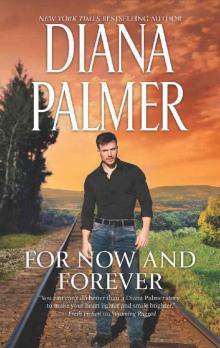 For Now and Forever
For Now and Forever Texas Proud and Circle of Gold
Texas Proud and Circle of Gold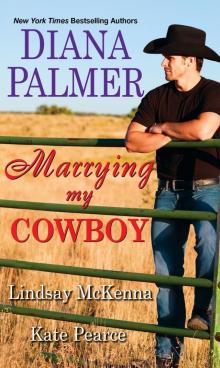 Marrying My Cowboy
Marrying My Cowboy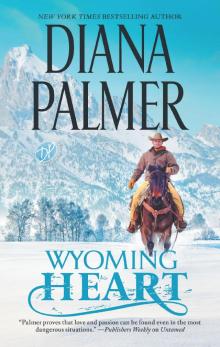 Wyoming Heart
Wyoming Heart Christmas Kisses with My Cowboy
Christmas Kisses with My Cowboy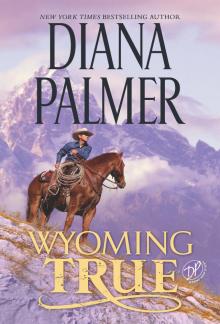 Wyoming True
Wyoming True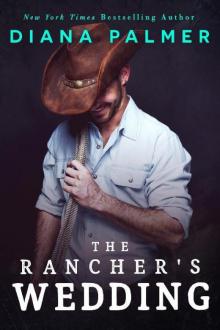 The Rancher's Wedding
The Rancher's Wedding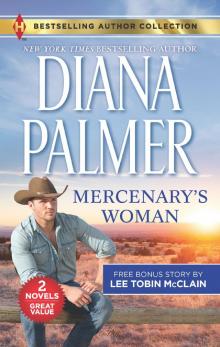 Mercenary's Woman ; Outlawed!
Mercenary's Woman ; Outlawed! Long, Tall Texans: Stanton ; Long, Tall Texans: Garon
Long, Tall Texans: Stanton ; Long, Tall Texans: Garon Lawless
Lawless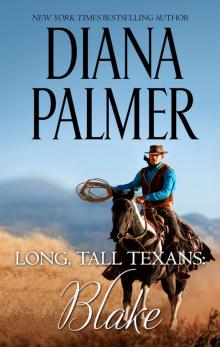 Blake
Blake Escapade
Escapade Fire Brand
Fire Brand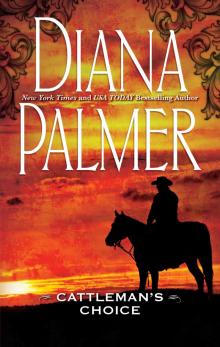 Cattleman's Choice
Cattleman's Choice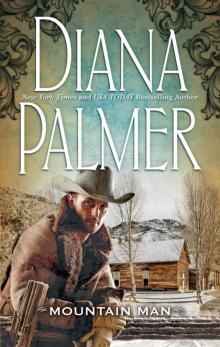 Mountain Man
Mountain Man Long, Tall and Tempted
Long, Tall and Tempted A Love Like This
A Love Like This Miss Greenhorn
Miss Greenhorn Magnolia
Magnolia Lord of the Desert
Lord of the Desert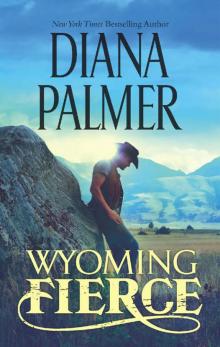 Wyoming Fierce
Wyoming Fierce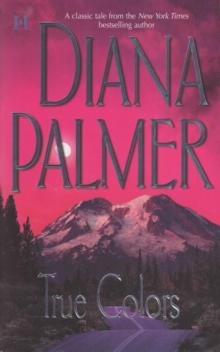 True Colors
True Colors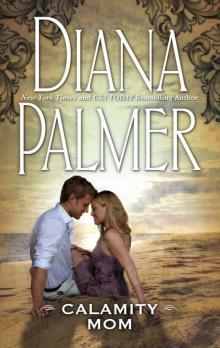 Calamity Mom
Calamity Mom The Pursuit
The Pursuit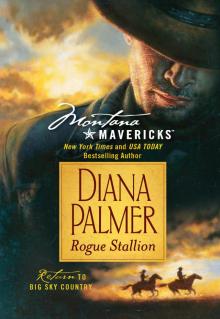 Rogue Stallion
Rogue Stallion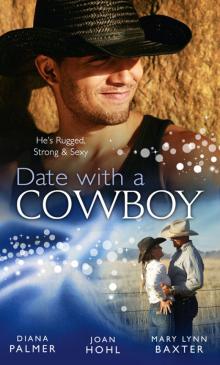 Date with a Cowboy
Date with a Cowboy Heart of Winter
Heart of Winter Friends and Lovers
Friends and Lovers Love on Trial
Love on Trial Boss Man
Boss Man Callaghan's Bride
Callaghan's Bride Before Sunrise
Before Sunrise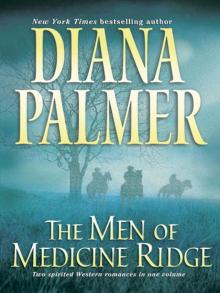 The Men of Medicine Ridge
The Men of Medicine Ridge Texas Proud
Texas Proud Wyoming Tough
Wyoming Tough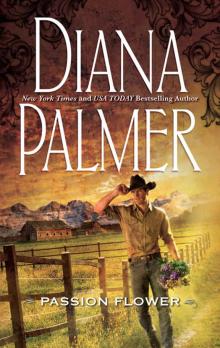 Passion Flower
Passion Flower Maggie's Dad
Maggie's Dad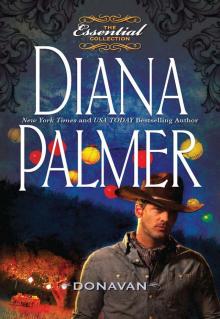 Donavan
Donavan The Rancher & Heart of Stone
The Rancher & Heart of Stone Long, Tall Texans: Tom
Long, Tall Texans: Tom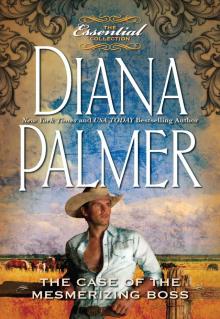 The Case of the Mesmerizing Boss
The Case of the Mesmerizing Boss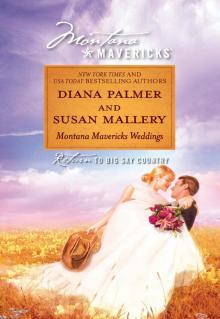 Montana Mavericks Weddings
Montana Mavericks Weddings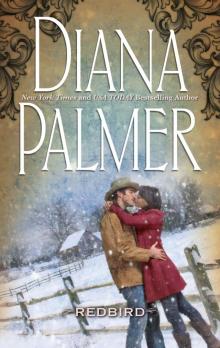 Redbird
Redbird Wyoming Strong
Wyoming Strong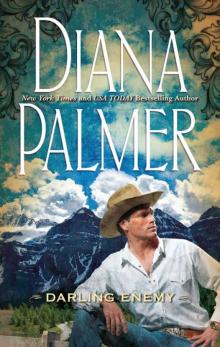 Darling Enemy
Darling Enemy Love by Proxy
Love by Proxy Coltrain's Proposal
Coltrain's Proposal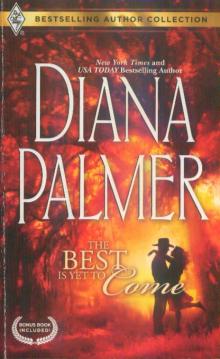 The Best Is Yet to Come & Maternity Bride
The Best Is Yet to Come & Maternity Bride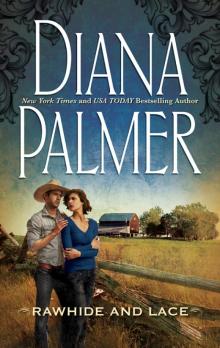 Rawhide and Lace
Rawhide and Lace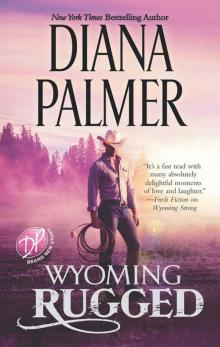 Wyoming Rugged
Wyoming Rugged Patient Nurse
Patient Nurse Undaunted
Undaunted Long Tall Texans Series Book 13 - Redbird
Long Tall Texans Series Book 13 - Redbird Outsider
Outsider Long, Tall Texans: Drew
Long, Tall Texans: Drew Long, Tall Texans--Christopher
Long, Tall Texans--Christopher Merciless
Merciless A Match Made Under the Mistletoe
A Match Made Under the Mistletoe Evan
Evan Hunter
Hunter Now and Forever
Now and Forever Hard to Handle
Hard to Handle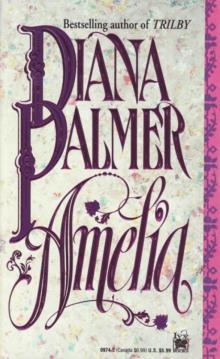 Amelia
Amelia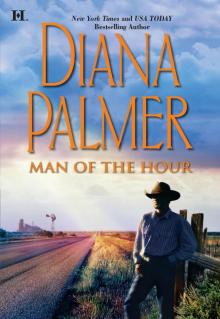 Man of the Hour
Man of the Hour Invincible
Invincible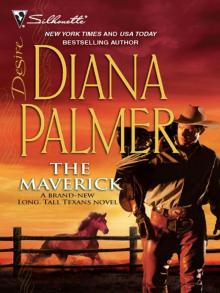 The Maverick
The Maverick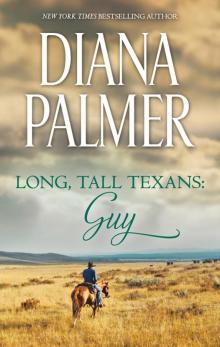 Long, Tall Texans--Guy
Long, Tall Texans--Guy Noelle
Noelle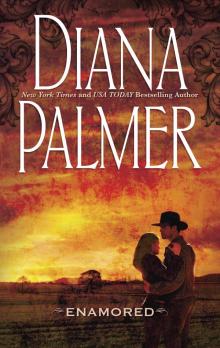 Enamored
Enamored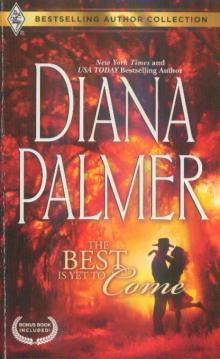 The Best Is Yet to Come
The Best Is Yet to Come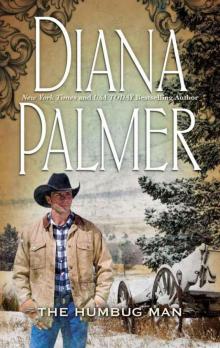 The Humbug Man
The Humbug Man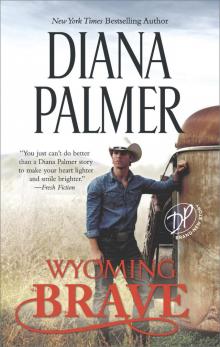 Wyoming Brave
Wyoming Brave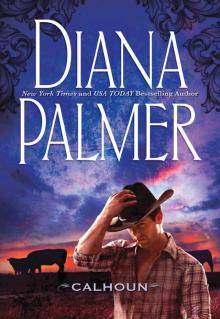 Calhoun
Calhoun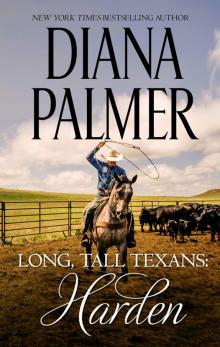 Long, Tall Texans--Harden
Long, Tall Texans--Harden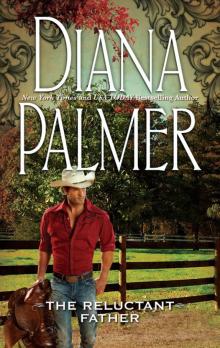 The Reluctant Father
The Reluctant Father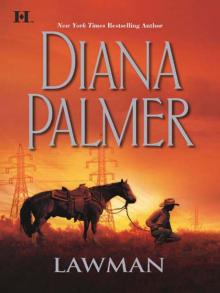 Lawman
Lawman Long, Tall Texans: Hank & Ultimate Cowboy ; Long, Tall Texans: Hank
Long, Tall Texans: Hank & Ultimate Cowboy ; Long, Tall Texans: Hank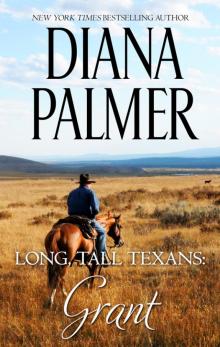 Grant
Grant Nelson's Brand
Nelson's Brand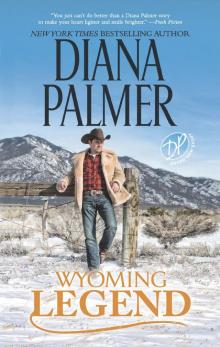 Wyoming Legend
Wyoming Legend Diamond Spur
Diamond Spur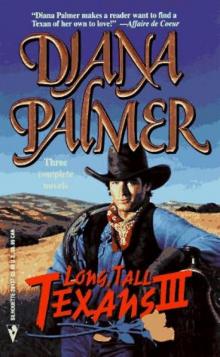 That Burke Man
That Burke Man Wyoming Bold (Mills & Boon M&B)
Wyoming Bold (Mills & Boon M&B) Heartless
Heartless Long, Tall Texans--Luke
Long, Tall Texans--Luke To Have and to Hold
To Have and to Hold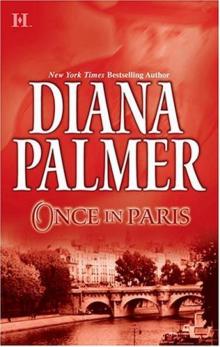 Once in Paris
Once in Paris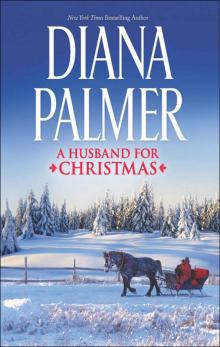 A Husband for Christmas: Snow KissesLionhearted
A Husband for Christmas: Snow KissesLionhearted Night Fever
Night Fever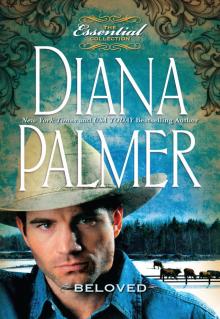 Beloved
Beloved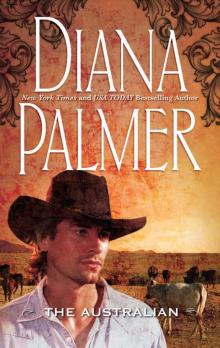 The Australian
The Australian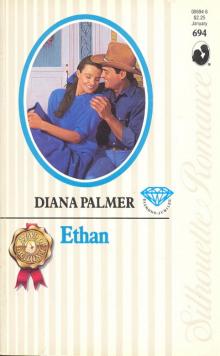 Ethan
Ethan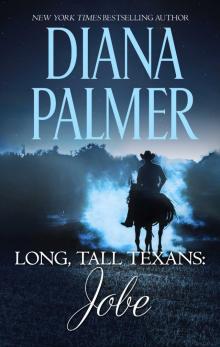 Long, Tall Texans: Jobe
Long, Tall Texans: Jobe Bound by Honor: Mercenary's WomanThe Winter Soldier
Bound by Honor: Mercenary's WomanThe Winter Soldier Tender Stranger
Tender Stranger After Midnight
After Midnight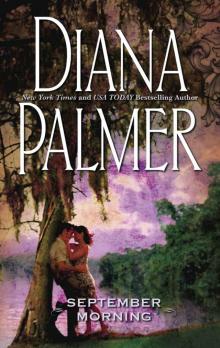 September Morning
September Morning To Wear His Ring
To Wear His Ring Heartbreaker
Heartbreaker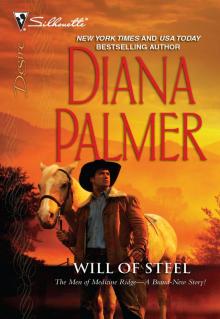 Will of Steel
Will of Steel Dangerous
Dangerous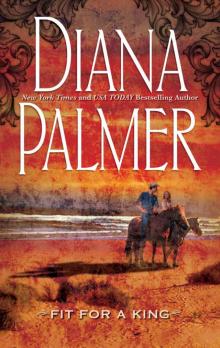 Fit for a King
Fit for a King Diamond in the Rough
Diamond in the Rough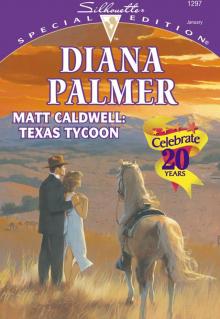 Matt Caldwell: Texas Tycoon
Matt Caldwell: Texas Tycoon Iron Cowboy
Iron Cowboy Fire And Ice
Fire And Ice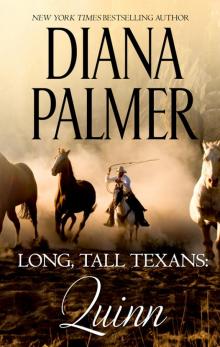 Long, Tall Texans--Quinn--A Single Dad Western Romance
Long, Tall Texans--Quinn--A Single Dad Western Romance Montana Mavericks, Books 1-4
Montana Mavericks, Books 1-4 Denim and Lace
Denim and Lace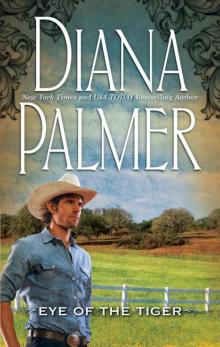 Eye of the Tiger
Eye of the Tiger The Princess Bride
The Princess Bride Long, Tall Texans: Rey ; Long, Tall Texans: Curtis ; A Man of Means ; Garden Cop
Long, Tall Texans: Rey ; Long, Tall Texans: Curtis ; A Man of Means ; Garden Cop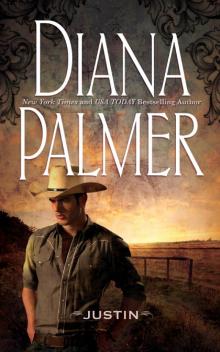 Justin
Justin Nora
Nora The Morcai Battalion
The Morcai Battalion Heart of Stone
Heart of Stone The Morcai Battalion: The Recruit
The Morcai Battalion: The Recruit To Love and Cherish
To Love and Cherish Invictus
Invictus Regan's Pride
Regan's Pride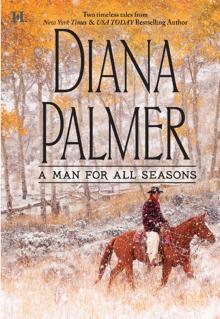 A Man for All Seasons
A Man for All Seasons Sweet Enemy
Sweet Enemy Desperado
Desperado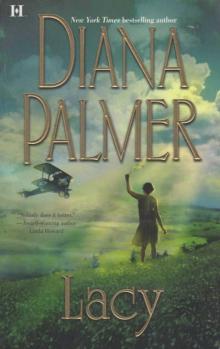 Lacy
Lacy The Winter Man
The Winter Man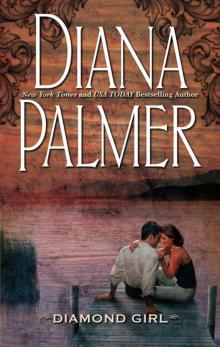 Diamond Girl
Diamond Girl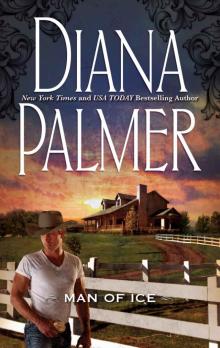 Man of Ice
Man of Ice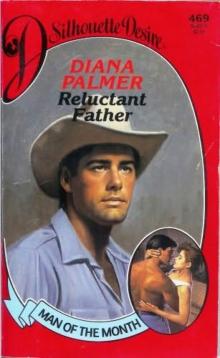 Reluctant Father
Reluctant Father Christmas with My Cowboy
Christmas with My Cowboy Love with a Long, Tall Texan
Love with a Long, Tall Texan Wyoming Bold wm-3
Wyoming Bold wm-3 King's Ransom
King's Ransom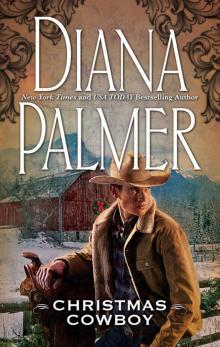 Christmas Cowboy
Christmas Cowboy Heart of Ice
Heart of Ice Fearless
Fearless Long, Tall Texans_Hank
Long, Tall Texans_Hank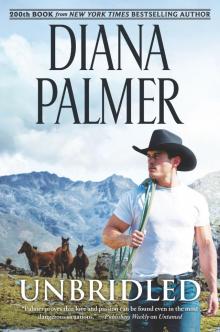 Unbridled
Unbridled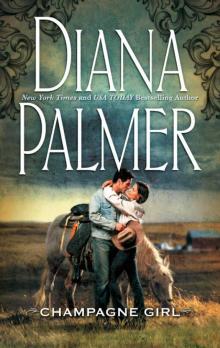 Champagne Girl
Champagne Girl The Greatest Gift
The Greatest Gift Storm Over the Lake
Storm Over the Lake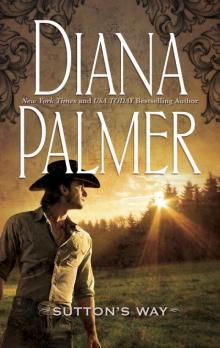 Sutton's Way
Sutton's Way Lionhearted
Lionhearted Renegade
Renegade Betrayed by Love
Betrayed by Love Dream's End
Dream's End All That Glitters
All That Glitters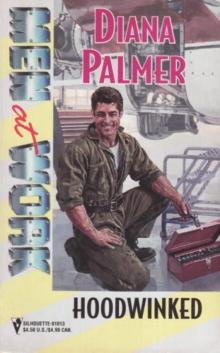 Hoodwinked
Hoodwinked Soldier of Fortune
Soldier of Fortune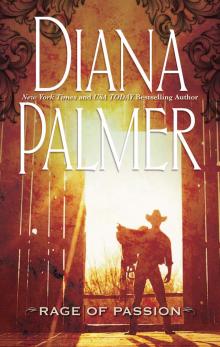 Rage of Passion
Rage of Passion Winter Roses
Winter Roses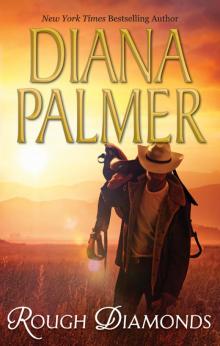 Rough Diamonds: Wyoming ToughDiamond in the Rough
Rough Diamonds: Wyoming ToughDiamond in the Rough Protector
Protector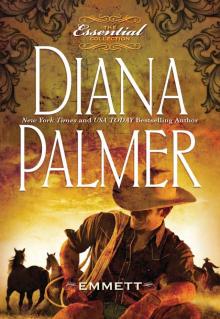 Emmett
Emmett True Blue
True Blue The Tender Stranger
The Tender Stranger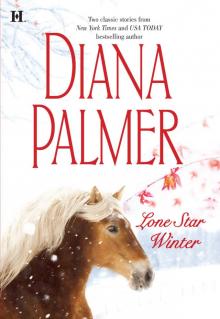 Lone Star Winter
Lone Star Winter Man in Control
Man in Control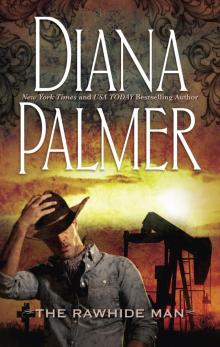 The Rawhide Man
The Rawhide Man Untamed
Untamed Midnight Rider
Midnight Rider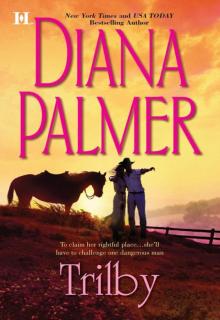 Trilby
Trilby A Long Tall Texan Summer
A Long Tall Texan Summer Tangled Destinies
Tangled Destinies LovePlay
LovePlay Blind Promises
Blind Promises Carrera's Bride
Carrera's Bride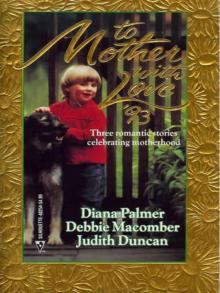 Calamity Mum
Calamity Mum Long, Tall Texan Legacy
Long, Tall Texan Legacy Bound by Honor
Bound by Honor Wyoming Winter--A Small-Town Christmas Romance
Wyoming Winter--A Small-Town Christmas Romance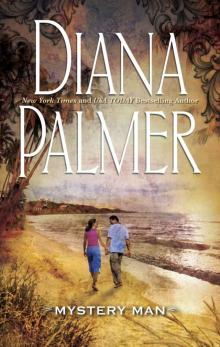 Mystery Man
Mystery Man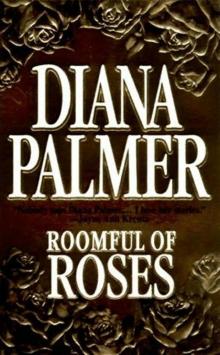 Roomful of Roses
Roomful of Roses Defender
Defender Bound by a Promise
Bound by a Promise Paper Rose
Paper Rose If Winter Comes
If Winter Comes Circle of Gold
Circle of Gold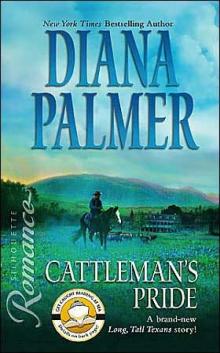 Cattleman's Pride
Cattleman's Pride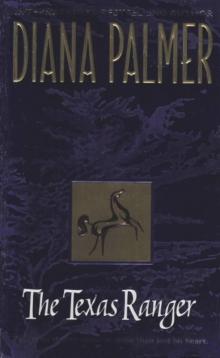 The Texas Ranger
The Texas Ranger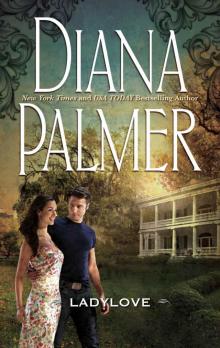 Lady Love
Lady Love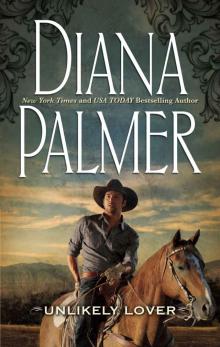 Unlikely Lover
Unlikely Lover A Man of Means
A Man of Means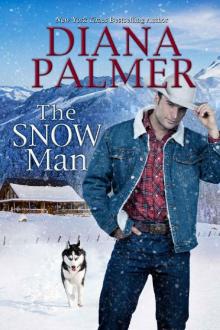 The Snow Man
The Snow Man The Case of the Missing Secretary
The Case of the Missing Secretary Harden
Harden Tough to Tame
Tough to Tame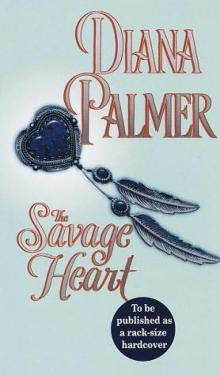 The Savage Heart
The Savage Heart